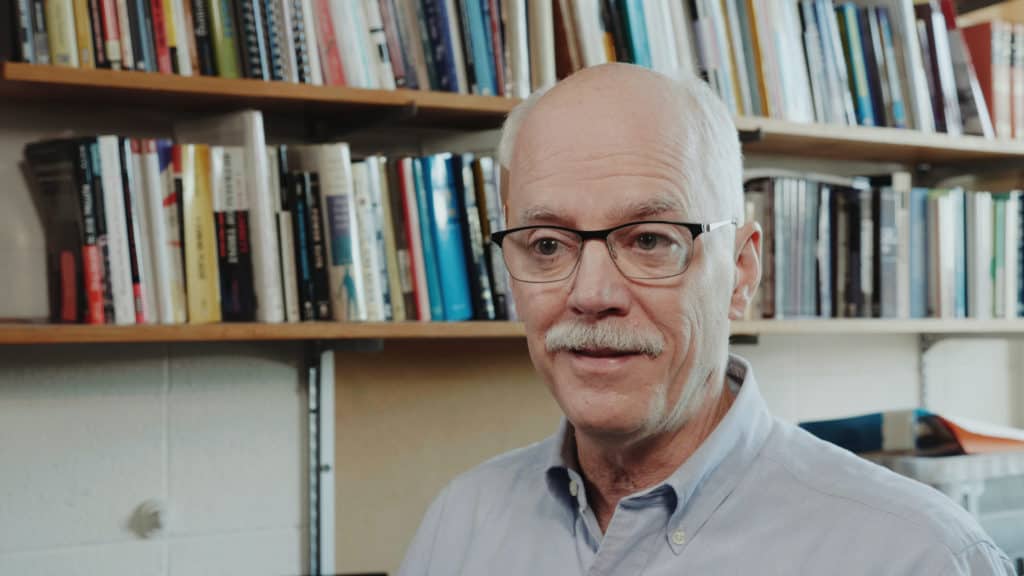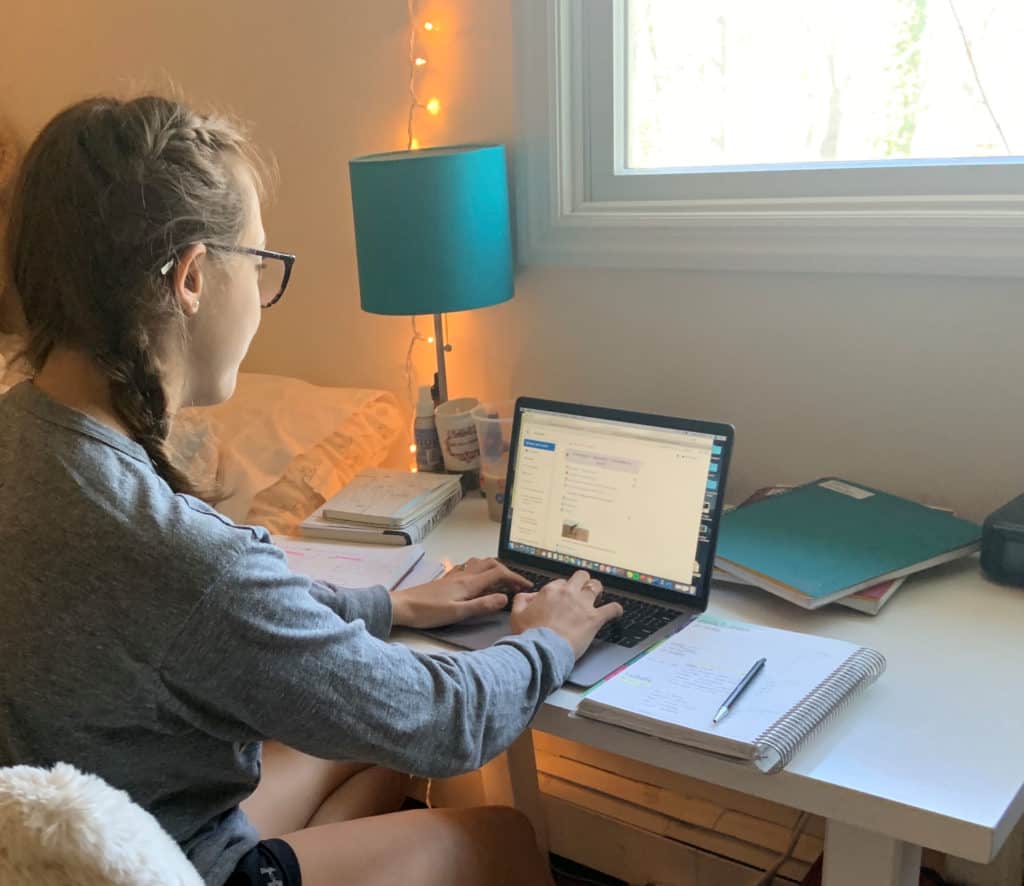‘Global Health’ Course Helps Students Understand Complexities of COVID-19 Pandemic
When the spring semester began, students in the “Anthropology and Global Health” course at Trinity College had no idea just how timely their class discussions would become.

Each time he teaches the course, James A. Trostle, Scott M. Johnson ’97 Distinguished Professor of Anthropology, makes sure it addresses current health news from around the world. Early in the semester, he told students about a new coronavirus that was then taking hold in China. By the third week of class, the COVID-19 global health crisis was quickly becoming the most important topic in every day’s news. The very disease the students were studying eventually came to impact how they lived and how they learned, with all Trinity courses now being conducted remotely.
While the COVID-19 pandemic and its public health response unfold around the globe, Trostle’s course helps students understand public health problems and the organizations that exist to address them. “Public health is a complex field,” says Trostle. “We say it’s about health, but what we’re really studying is disease.”
Trostle, who holds a master’s degree in public health in epidemiology and a Ph.D. in medical anthropology, came to Trinity in 1998 after helping to manage a large international health program at the Harvard Institute for International Development. He served for 13 years on various advisory groups for the World Health Organization (WHO) and has been a co-principal investigator on projects studying diseases in coastal Ecuador since 2002. This semester he also is teaching “Medical Anthropology,” which challenges students to think about mortality and suffering and how those concepts impact beliefs and values.
“Teaching about diseases and systems of dealing with diseases when one particular disease is so permanently in our consciousness and in our daily practices gives us all kinds of occasions to think well—with an excessive number of specific opportunities—about how disease comes to mean different kinds of things,” Trostle says.
The “Global Health” class has been exploring topics including the meaning of a virus’s reproductive number, the importance of community-based studies, the problematics of measurement without comprehensive testing, and the populations and conditions in which a virus might thrive. “I want students to understand where the numbers that are thrown around about incidence, prevalence, risk, and fatality rates come from,” Trostle says. In one exercise, students give presentations about what organizations like the WHO might recommend doing during an epidemic.

Alli Futter ’23 says she has learned about the different groups that monitor how a disease spreads and how to stop it. “There are a lot of complex dynamics between these ‘higher power’ establishments that I didn’t know existed,” she says. “It has been extremely helpful to cement the concepts and history we’ve been exploring in class because it is happening right before our eyes and is extremely relevant to us. Whenever a piece of the news of COVID-19 is shared, I find myself immediately thinking about the way in which the concepts in class are at work.”
Another of Trostle’s goals for the course is to help students be better able to analyze all the news they read about the pandemic and to think critically about the sources and motivations behind varying reports.
Caroline Richards ’22, an anthropology and English double major, says she now recognizes the connection between fear and misinformation around COVID-19. “Professor Trostle taught us not only to be aware of the effects of the disease but also the effects of people changing their behavior in ways that are fueled by panic,” she says. “One of the most engaging lessons we had about COVID-19 was when Professor Trostle put a few articles up on the projector and picked them apart to find the root of their evidence, or lack thereof. Just by doing this, I found I was so much better equipped to intelligently analyze news articles and sift through all of the hate-fueled or fear-fueled media.”
A global health perspective, Trostle says, can help everyone understand the difference between thinking about disease as an individual experience versus a group experience. “There are many groups that are far more mortally influenced by this disease than others. Social stratification systematically influences both exposure and recovery inside and outside of the U.S.,” Trostle says. “The overarching message is that we are interconnected in many, many ways, and it’s in my interest as an educator to help my students understand, critique, and repair those connections in the future.”
Richards adds, “The fact that we are living through COVID-19 in real time is brutal, but it is also a valuable learning experience that Professor Trostle has allowed us to take full advantage of. This alone has definitely taught everyone in this class to look at global health in an entirely new way—one that is less simplistic and distanced.”
